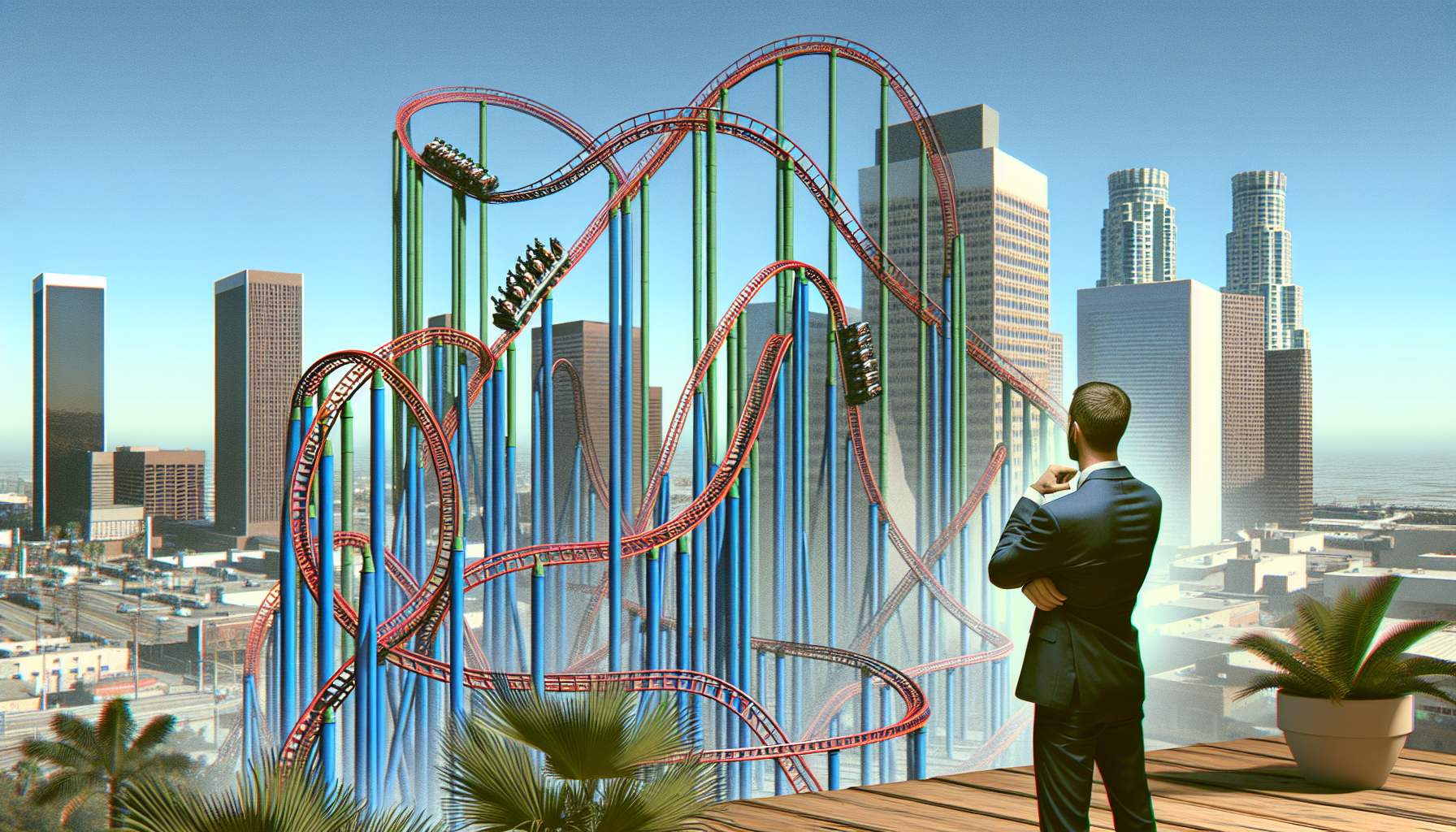
Ah, the Port of Los Angeles, a once-thrumming artery of global commerce, now finds itself in a state of eerie tranquility. Towering cranes that usually dance with container ships now stand silent. Longshoremen, who once bustled around like bees in a hive, are left to contemplate the structural beauty of their bomb carts. All thanks to the economic wizardry of tariffs — a strategy so cunning, it’s akin to shooting yourself in the foot to cure a headache.
The port, a vital cog in the U.S. economic machine, is now a ghost town. Gene Seroka, the port’s chief executive, laments the cancellation of nearly a fifth of expected ships in May. A “quiet day,” he calls it. Quiet indeed, if by quiet you mean the sound of economic activity being strangled by tariffs masquerading as trade policy.
This maritime wasteland stretches across 75 miles of Southern California, a testament to the genius of mercantile disruption. The Port of Los Angeles and its neighbor in Long Beach push 40% of the nation’s imported goods, while also handling 30% of exports. When these ports sneeze, the U.S. economy catches a cold. But hey, a little economic pneumonia never hurt anyone, right?
The tariff tango has left the ports in a state of perpetual flux, with shippers and port workers caught in the crossfire. The earlier mad dash to import goods before tariffs hit their century-high crescendo has dissipated, leaving behind a sluggish, uncertain trade environment. Companies and workers alike are left to ponder their fates, as the looming specter of even higher tariffs keeps them up at night.
The ripple effects of this chaos are set to spread through the economy like a bad case of the flu. With fewer goods flowing through ports and warehouses, American consumers can look forward to the delight of higher prices. Fewer imports, fewer exports, and a whole lot of economic uncertainty – it’s the perfect recipe for a robust economy, or so we’re led to believe.
In the grand theater of economic policy, tariffs are the star players. And as the curtain falls on this act of self-inflicted economic harm, one can’t help but wonder if there’s a second act where reason prevails. But until then, we can all enjoy the spectacle of a quiet port and an even quieter economic forecast.


